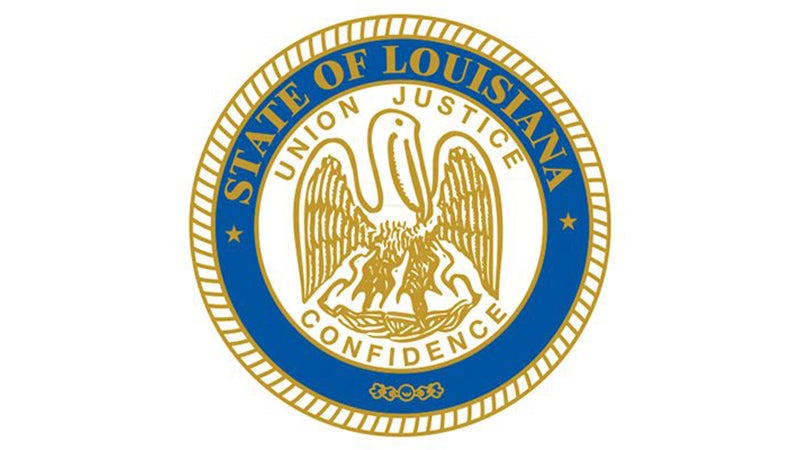Gov. Edwards Signs the First and Historic Posthumous Pardon of Civil Rights Leader Mr. Homer A. Plessy
Published 12:48 pm Wednesday, January 5, 2022
|
Getting your Trinity Audio player ready...
|
BATON ROUGE — Today, Gov. John Bel Edwards took the historic action of signing Louisiana’s first posthumous pardon of Mr. Homer A. Plessy, who was convicted of violating Louisiana’s Separate Car Act of 1890, the purpose of which was to ensure racial segregation as a means to promote white supremacy. Gov. Edwards was joined by descendants of Homer A. Plessy, Justice John Harlan, and Judge John Ferguson, as well as by Southern University Professor of Law Angela Bell, Orleans District Attorney Jason Williams, civil rights leaders and a number of state and local elected officials.
“The first six decades of the 21st century should have been filled with infinitely more promise and progress in race relations, and they would have been had slavery and segregation given way to equality and freedom as a plain reading of the 13th and 14th Amendments required,” said Gov. Edwards. “Instead, the 1896 Plessy decision ordained segregation for the explicit purpose of declaring and perpetuating white supremacy, as immoral and factually erroneous as that was —and is. The fictitious notion of “separate but equal” remained with us until the United States Supreme Court revisited the issue in 1954 in the context of public education and implicitly overruled Plessy. Mr. Plessy’s conviction should never have happened. But, there is no expiration on justice. No matter is ever settled until it is settled right. It is with great joy that today I pardon Homer Plessy and settle this matter. We still have a long way to go when it comes to equality and justice, but this pardon is certainly a step in the right direction.”
On June 7, 1892 in New Orleans, Louisiana, Mr. Homer A. Plessy purchased a first-class ticket on the East Louisiana Railroad Company train bound for Covington when he was asked by the conductor to leave and sit in the “colored car” as required by the 1890 Separate Car Act. When he refused, he was arrested. The constitutionality of his arrest was challenged by Louis A. Martinet, Albion Tourgee, and others in the Comité des Citoyens (Citizen’s Committee) to test Louisiana’s recently-enacted racial segregation laws. The United States Supreme Court heard Plessy v. Ferguson in 1896 and held that the Constitution permitted legally-enforced segregation on the basis of race. That allowed for the enactment of a slew of laws by southern states that created the Jim Crow regime.
Notably, Plessy’s criminal conduct in 1892 was virtually the same as Rosa Park’s courageous protest sixty-three years later in Montgomery, Alabama in 1955 when she refused to leave a seat designated for white riders.
Homer Plessy died in 1925. In recognition of the upcoming 125th anniversary of Mr. Plessy’s conviction by guilty plea in Orleans Parish Criminal District Court, an application was submitted to the Louisiana Board of Pardons and Governor John Bel Edwards for Mr. Plessy to receive a full gubernatorial pardon. It was submitted by Orleans District Attorney Jason Williams, the same office that sought Mr. Plessy’s conviction.
“It was important that the office that prosecuted Homer Plessy be the office to ask for his name to be pardoned,” said Orleans District Attorney Jason Williams. “While Homer Plessy’s actions made him guilty of a crime under law, it was the law that was the real crime. I applaud Governor Edwards for pardoning Homer Plessy and bringing full focus to this stain on our state’s history so that we can become a more just Louisiana.”
The Avery C. Alexander Act, authored by former Louisiana State Senator Edwin Murray of New Orleans, created an expedited application process for posthumous pardons. Mr. Plessy meets all the criteria of the law.
“With the stroke of his pen, Governor John Bel Edwards opens a new chapter in the legacy of Homer Adolph Plessy,” said Keith Plessy, descendant of Homer Plessy. “This historic posthumous pardon is proof that 125 years after his conviction, the state of Louisiana, recognizes and honors Plessy for his role in opening the gates of the Civil Rights Movement of the 20th century.”
“We cannot undo the wrongs of the past but when our government officials publicly acknowledge them and take steps to legally correct them, we give hope to this generation and the next, who will continue to be on the front lines in the fight for justice and equity in America,” said Phoebe Ferguson, descendant of Judge John H. Ferguson.
“On behalf of the Harlan descendants, I am honored to participate in this historic pardon of Homer Plessy, which represents an important step of progress and healing,” said Kate Dillingham. “Our family has always valued the lone but vigorous dissent of our great-great-grandfather, Supreme Court Justice John Marshall Harlan, in Plessy v. Ferguson. He was deeply committed to fairness, equality and justice under the law, and we are moved to see this righting of a profound wrong that he identified 125 years ago.”





